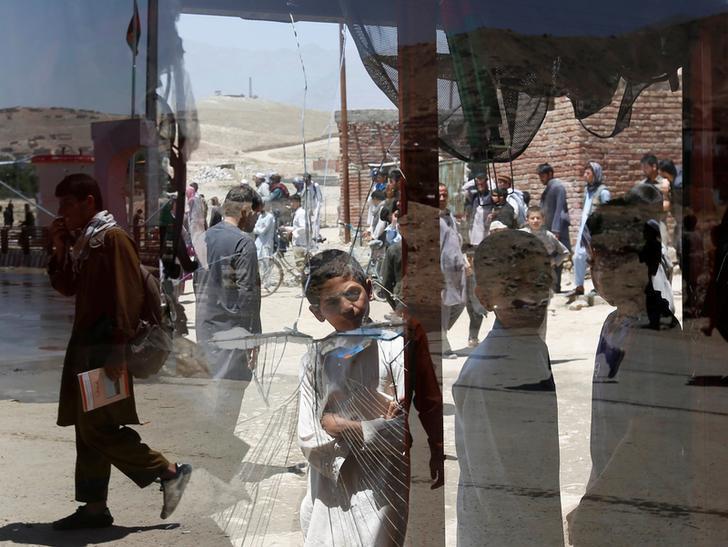Afghan boys look a damaged window of a shop after a suicide attack in west of Kabul, Afghanistan May 25, 2016.
The Taliban have a new leader. His name is Hibatullah Akhundzada. That much we know for certain.
He’s said to be an Islamic legal scholar and a deputy of the former Taliban mullah who reportedly died in a recent US drone strike. But there may be more questions about Akhundzada than answers.
“We don't know a lot about mullah Hibatullah actually,” says Kabul-based journalist Sune Engel Rasmussen.
“What we do know is that he’s around 50, he was born in Kandahar, the southern province of Afghanistan, and he fled to Pakistan during the Soviet invasion, and then came back after the invasion and popped up as a pretty influential figure in the Taiban movement,” says Rasmussen, who has written for the Guardian and other international media from Afghanistan and Iran.
“He’s a religious cleric and used to be chief of justice for the Taliban regime during the ’90s and in that role he handed out decrees and issued fatwas ordering military operations but also executions and amputations and things like that as chief justice.”
Observers say that Akhundzada doesn't have a lot of experience as a military commander. Instead, he brings to the post more of the skill set of a religious scholar or a mediator. It’s really a matter of speculation whether the Taliban will or won’t thrive under his leadership.
“I think the US was hoping that the killing of Mullah Mansour [Akhundzada’s predecessor) is going to somehow coerce the Taliban to negotiate for peace all of a sudden and I can't see that happening anytime soon. I think the Taliban will respond to this killing of their leader with retaliation. Even if a leader like Hibatullah would be favorable to engaging in the peace process, I think there are so many different commanders and so many different provinces in Afghanistan that getting a concerted effort for the Taliban behind any peace effort is going to take a long time.”
It would also appear that the new Taliban leader won’t end the bloody fight against the Afghan government anytime soon. Within an hour of Akhundzada’s appointment, a Taliban suicide bomber attacked a bus in Kabul. Eleven people died, including children.
One more thing. Akhundzada doesn’t like to be photographed. That’s because he's apparently against music, against television and radio, and also against cameras, Rasmussen says. For several days, a Taliban spokesman insisted that no photos of the new leader existed. Then one photo surfaced on social media. But it’s rumored to be several years old judging by the color of his now white beard.
Every day, reporters and producers at The World are hard at work bringing you human-centered news from across the globe. But we can’t do it without you. We need your support to ensure we can continue this work for another year.
Make a gift today, and you’ll help us unlock a matching gift of $67,000!
